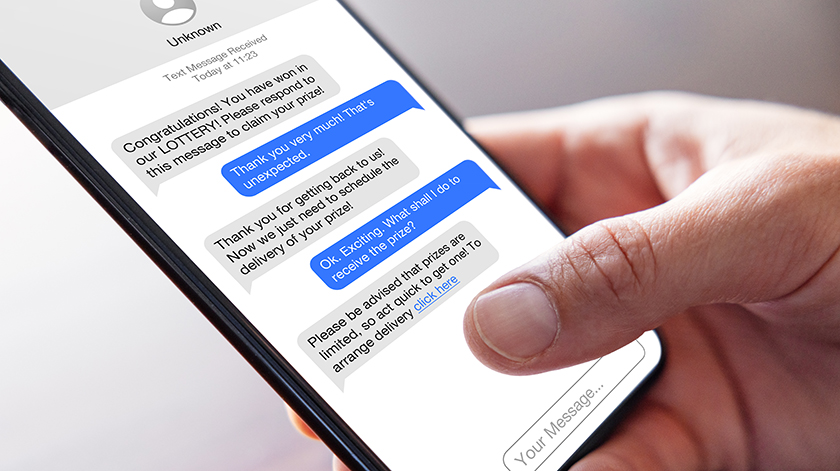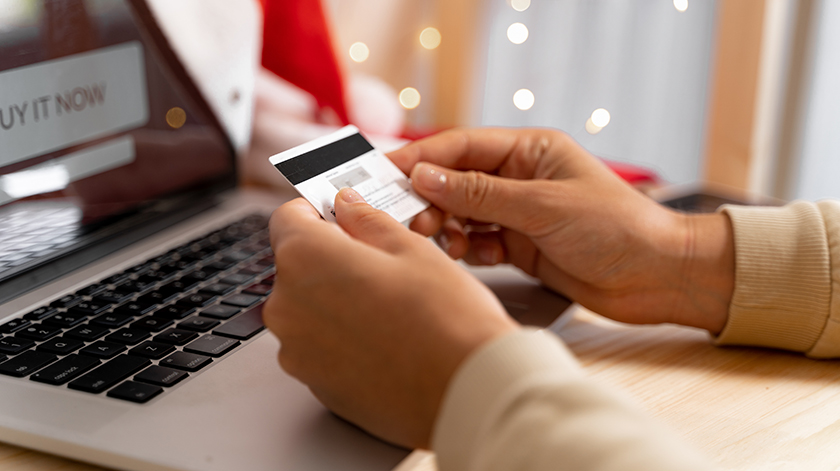It’s the most wonderful time of year—especially for scammers. While we are busy shopping and swapping gifts, clever criminals are looking to swindle us out of as much cash as possible. Their favorite tool? Gift cards. After all, they are easy to get, available almost anywhere, and offer fewer protections than credit or debit cards. Most importantly, much like cash, once the gift card balance is zero, the money is gone.
Buying and Using Gift Cards
If you are purchasing gift cards this year, safeguard yourself against fraud by purchasing them with a credit card. If something happens—including loss or theft—you’ll have a greater chance of getting your money back than you would with a cash or debit purchase. Also, follow these tips to make sure you get what you are paying for:
- Inspect the card. When purchasing gift cards, be sure to check the packaging or flip the card over to make sure it hasn’t been tampered with. If the gift card number is exposed or the protective strip has been scratched off, do not purchase the card. If a scammer has those numbers, they can snag the gift card balance the moment you activate and add money to the card.
- Watch for fake barcodes. Scammers have also been known to add fake barcode stickers to the existing gift cards on store shelves. Then, when the card is activated, the money gets added to the scammer’s card instead of the card that’s being purchased. To avoid this, make sure there are no visible stickers on the card and—if you can—make sure the number on the card matches the number from the packaging that gets scanned.
- Stick to trusted retailers. Whenever possible, purchase your gift card directly from the retailer (a.k.a., buy your Starbucks card from Starbucks). Also, avoid buying gift cards from online auction sites and retailers like Walmart and Amazon that outsource sales to other vendors.
- Keep the receipt. Even if you are giving the gift card to someone else, take a picture of the receipt and gift card with your phone. Keep a record of it until the card has been used. If something goes wrong, the number on the gift card and the store receipt will help you declare the problem or file a fraud report.
Gift Card Scams to Watch Out For
1. Predatory Gift Card Scams
The methods vary, but gift card scams typically involve a sense of urgency, some kind of threat, and a command to deliver large amounts of cash through specific gift cards (often Target, Apple, eBay, and Walmart gift cards). The trouble is, no real business or government agency will ever tell you to pay them with a gift card. If this happens to you, hang up. Remember: Gift cards are not a legitimate payment delivery device. They are only meant to be gifts. Never buy a gift card because someone tells you to buy one to pay a fee, fine, or past-due bill.
2. The Hacked Friend or Family Member Scam
This scam starts when a cybercriminal hacks into the email or social media account of someone you know and then messages you (and others) asking for help. They may claim to have an emergency or simply want help “buying a gift” for someone else. So, they ask you to purchase gift cards and send them the details. The bottom line is, you should never give out gift card numbers over email, text, or the phone unless you intend to lose the money on the card. If a friend
3. The Fake Prize Gift Card Scam
With this type of scam, you’ll often get a call, email, or text message stating that you have won a contest, sweepstakes, or lottery. To secure the prize, they say, you must first pay a fee by purchasing a gift card and submitting the card’s PIN as proof. The reality is, no legitimate lottery or sweepstakes requires you to pay a fee via gift card. If you get this kind of call, hang up. What’s more, it’s wise to be wary of any contest that requires you to pay (by gift card, cash, or credit) to claim your prize.
4. The Online Auction Scam
You can get great deals on clothes, designer goods, and vintage items from online auction sites like eBay, OfferUp, Craigslist, or Poshmark but be forewarned that such websites are risky places to shop for gift cards. It is common for scammers to sell gift cards that haven’t been activated or have already been used. As an added touch, these scams may even include a “balance checker” phone number to convince you that the deal is legitimate, but this has also been faked.
5. The Boss or Business Impersonation Scam
With this type of scam, you’ll get a text or email that looks like it comes from your boss or colleague. In the message your “boss” claims to have an urgent request. If you reply, he or she will ask you to purchase several gift cards and send photos of the gift card numbers and PINs. They promise you will be reimbursed, but it’s a scam. If you get a message like this, contact the person the scammer claims to be via a different channel to confirm.
6. The Payment for Services Gift Card Scam
This scam often starts with a pop-up message on your computer shouting in all caps that your device is infected. You MUST NOT restart your computer, it shouts. Instead, it offers a phone number and insists that you call a certified technician to resolve the issue. This is a scam. In many cases, you can restart your computer without issue. If you call the number, they will “fix” the problem and then demand payment for their services—often with a gift card. Realistically, legitimate tech support companies (and other support services) do not operate that way. What’s more, if you give the scammer control of your computer, they may install malicious software that grants them access to your personal information. So, if someone asks you to pay for services via gift card, hang up and report the issue.
If You’ve Been Scammed With a Gift Card
If you purchased a gift card and gave someone the numbers, chances are you’ve been scammed. If you purchased a card and the money you spent doesn’t show up on the card, you may have been scammed. Sadly, in both cases, that money is likely gone. If you paid with a credit card, you may be able to dispute the charge and recoup some (if not all) of your losses. If you paid with cash or a debit card, but still have the gift card and the receipt, contact the retailer or gift card company to see if they will refund your money (some may be willing to help). If nothing else, report the card as stolen by calling the number on the card or visiting their website. It’s also a good idea to report the incident to the FTC. The information collected may help with investigations and prevent future fraud incidents. If you have been scammed and think your accounts or personal information has been compromised, contact your financial institution immediately. You can call or text us at 503.588.0181 and we will walk you through the process of securing your accounts.

The question remains: Are gift cards practical, meaningful gifts or impersonal gestures? Check out our previous post, “The Pros and Cons of Gift Cards” where we tackle the age-old debate.

